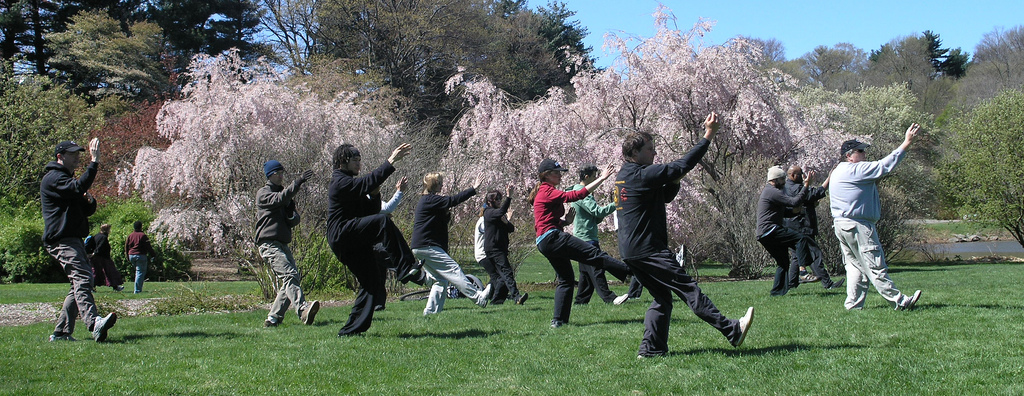
Image: Brian Robinson
The fountain of youth is yet to be found but researchers have discovered something closer to it – tai chi.
A new study published in Cell Transplantation revealed that tai chi has anti-aging benefits. Originating in ancient China, tai chi is often described as “meditation in motion.” It’s a low-impact, slow-motion exercise that involves deep breathing and mindfulness (hence, it’s called meditation in motion).
Unlike other forms of exercise, the movements in tai chi are not forced and are often in circular motion. In tai chi, the muscles are relaxed, joints are neither fully extended nor bent, and the connective tissues are not stretched. These make tai chi an exercise that can be easily adapted by anyone.
Tai Chi and Aging
The study involves three groups of volunteers under the age of 25 who engaged in tai chi, brisk walking, and those who don’t have any exercise habit at all.
Researchers found out that those who engaged in tai chi have higher CD34+ cell count compared to two other group of volunteers.
CD34+ cells are considered as “cluster markers” for blood stem cells that play a role in self-renewal, proliferation, and differentiation. Cell renewal helps in repairing and maintaining organ systems that usually slow down as a result of aging.
Other Benefits of Tai Chi
Aside from cell renewal, regular practice of tai chi is also shown to improve one’s mood, enhances one’s flexibility, agility and balance, lowers blood pressure, and improves one’s energy and stamina.
Studies have also revealed that tai chi can benefit people with the following conditions:
Parkinson’s Disease
In a study published in the New England Journal of Medicine, it was found out that those with Parkinson’s disease who practiced tai chi had fewer falls and had significantly improved their posture and gait.
Fibromyalgia
Those with fibromyalgia can also benefit from tai chi. It’s shown to provide relief from joint pain and other symptoms associated with the condition.
Chronic Heart Failure
Researchers from Harvard Medical School and the Beth Israel Deaconess Medical Center found out that patients who regularly practiced tai chi slept better and have a better overall quality of life.
Depression
Tai chi is an effective mood booster. According to the American Journal of Geriatric Psychiatry, a weekly tai chi exercise can help in improving the symptoms of depression. This has something to do with tai chi’s positive psychological effects.
Diabetes
A research published in the British Journal of Sports Medicine indicated that this low-impact exercise can help improve blood glucose levels and the overall immune system response in those with type 2 diabetes.
Other Conditions
There are also evidences showing that tai chi can help people with dementia, cognitive impairment, traumatic brain injury, insomnia, and those with breast cancer.
How Tai Chi Works
Tai chi is all about the uninhibited flow of energy through the body (also called the Qi). Its movements are carefully designed to boost blood and energy flow.
Tai chi works well in improving posture and gait as the movements emphasize correct spinal alignment.
It’s a good form of exercise, involving breathing techniques and physical activity. The interplay of these elements makes tai chi a good stress buster. It helps one stay focused and release the stress-related tension.
Tai chi can help improve flexibility and range of motion as it’s a combination of movements that involve different muscles, joints, ligaments, and tendons.
Getting Started with Tai Chi
Learning tai chi can be a rewarding experience, not to mention the multitude of health benefits you can gain from it.
Like other forms of exercise, you don’t become an expert in tai chi on the first day or even at first week of practicing it. Hence, as a beginner it’s very important to persevere with the practice. Give it time to really absorb and understand the essential principles of tai chi. It also helps to have an open mind to the different aspects of this exercise.